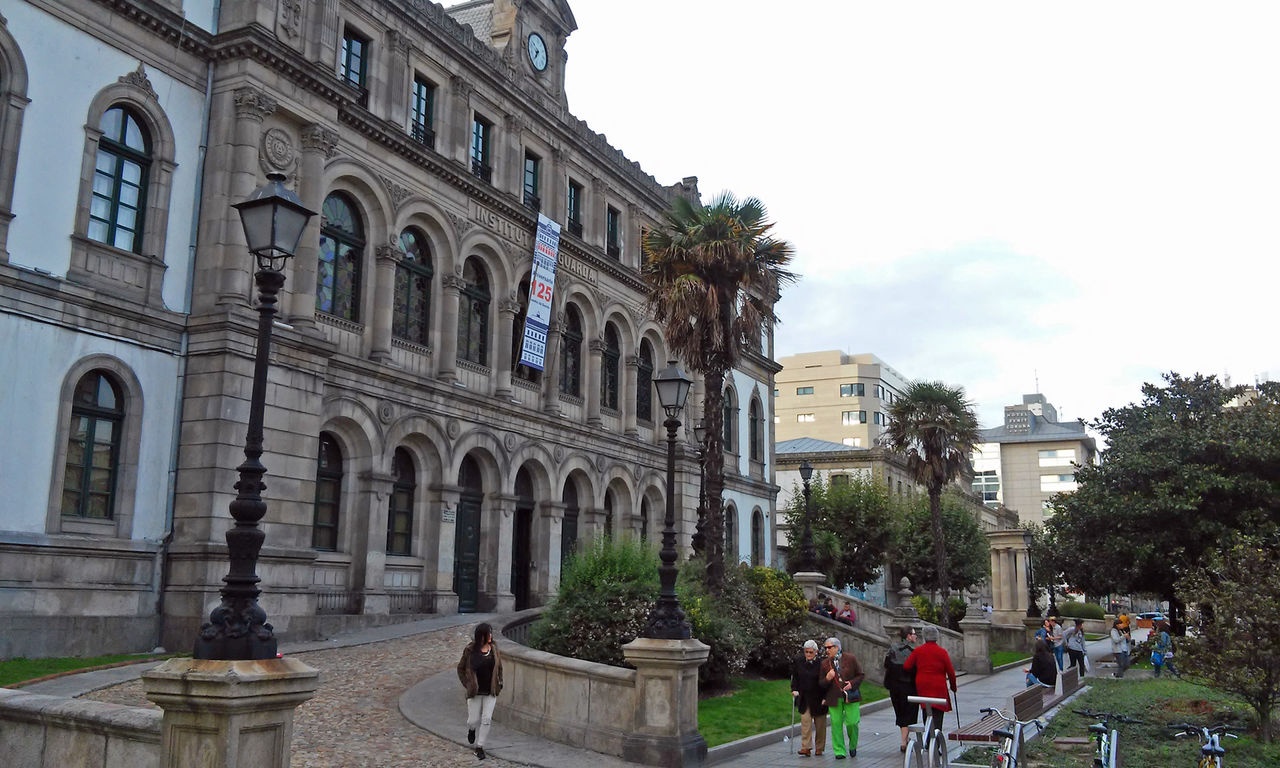
Uploaded on 2015-10-16 by msilvabarral
Housing Safety Health Care Sanitation Standards Education Job Opportunities Economy Environment Transportation Political Stability Recreation Possibilities Infrastructure Climate Culture International Conectivity **2. Why do we live where we live?** Downtown A Coruña, Spain. Urban Life Ease of communication Most services accesible by foot Safety Recreation Possibilities **3. To what extend does your own place of residence fulfill your ideal livability criteria?** Housing 95%. After the collapse of the housing bubble, there are many more houses avaliable than the actual demand. The prices have also dropped significantly, making it more accessible to low rents. Some families with no income at all that may have no access to housing after being evicted, along with marginal cases of substandard housing, are the only exceptions to an averagely good housing access. ![There are plenty of vacant flats, and in this particular moment housing prices are very low, guaranteeing wide access to housing even for low rents][1] Safety 85%. Besides occasional teen fights or rare pickpocketing, and although there are areas safer than others, the city as a whole is quite safe. Health Care 90%. There are plenty of health centers, both public and private. The main public hospital (CHUAC) is top-class when it comes to major surgery and transplants. Sanitation Standards 95%. The whole city being on steep hills rolling to the sea, there are no swamplands or stagnant water that generates diseases or sanitation problems. Waste and sewage water are treated. Coruña has a very good tap water, among the best in the country. Industries are mostly non-polluting manufacturers, with one exception: the oil refinery, wich seldom generates bad smells and smoke that can be sensed in the city. However, being just nearby the sea allows the wind to wipe out the bad smells quickly. Overall, sanitation standards are very high. ![The sea breeze wipes out the air pollution][2] Education 85%. From Kindergarten to University, every grade of education is widely covered. Again public and private education offer a variety of possibilities for all tastes -and budgets. University of A Coruña might not be top class, but offers a significant amount of degrees and masters. ![Instituto Eusebio da Guarda, one of the most reputated high schools in the city, along with its primary school (right)][3] **4. What would you change?** Transportation. This city experienced an accelerated growth from 1960 to 1990 based on a structure of large avenues, streets clogged with cars, tiny sidewalks and an absolute lack of parks and open areas. Although this one problem has been solved, with a series of large peripheric parks, the car is still dominant in the public space. There's a decent bus network, but people in general is reluctant to leave the car, as it is very fast thanks to the wide avenues and there are plenty of parking lots avaliable. The last moves made by the city council were to improve these infrastructures, incentivizing even more the use of the car. On the one hand, it is neccesary to improve the public transportation system, in order to offer more competitive frequencies and travel times. Implementing bus and bycicle lanes is fundamental, but there is also room for tram in the widest axes. On the other hand, some penalties are needed to incentivize the use of public transportation instead of car: reducing speed limits and number of lanes in avenues and streets, turning some streets to one-way or even pedestrian only, and closing some streets to traffic during some hours may convince the drivers to abandon their cars to become greener and healthier. **5. Why do we move?** Barcelona Copenhague Vienna High Education Possibilities Job Opportunities Urban Life and variety Culture Environment and climate [1]: http://s18.postimg.org/g5n5jfpnt/20151016_190338.jpg [2]: http://s29.postimg.org/xnjjzgyx3/20150815_140715.jpg [3]: http://s28.postimg.org/ji71bp059/20151016_185039.jpg